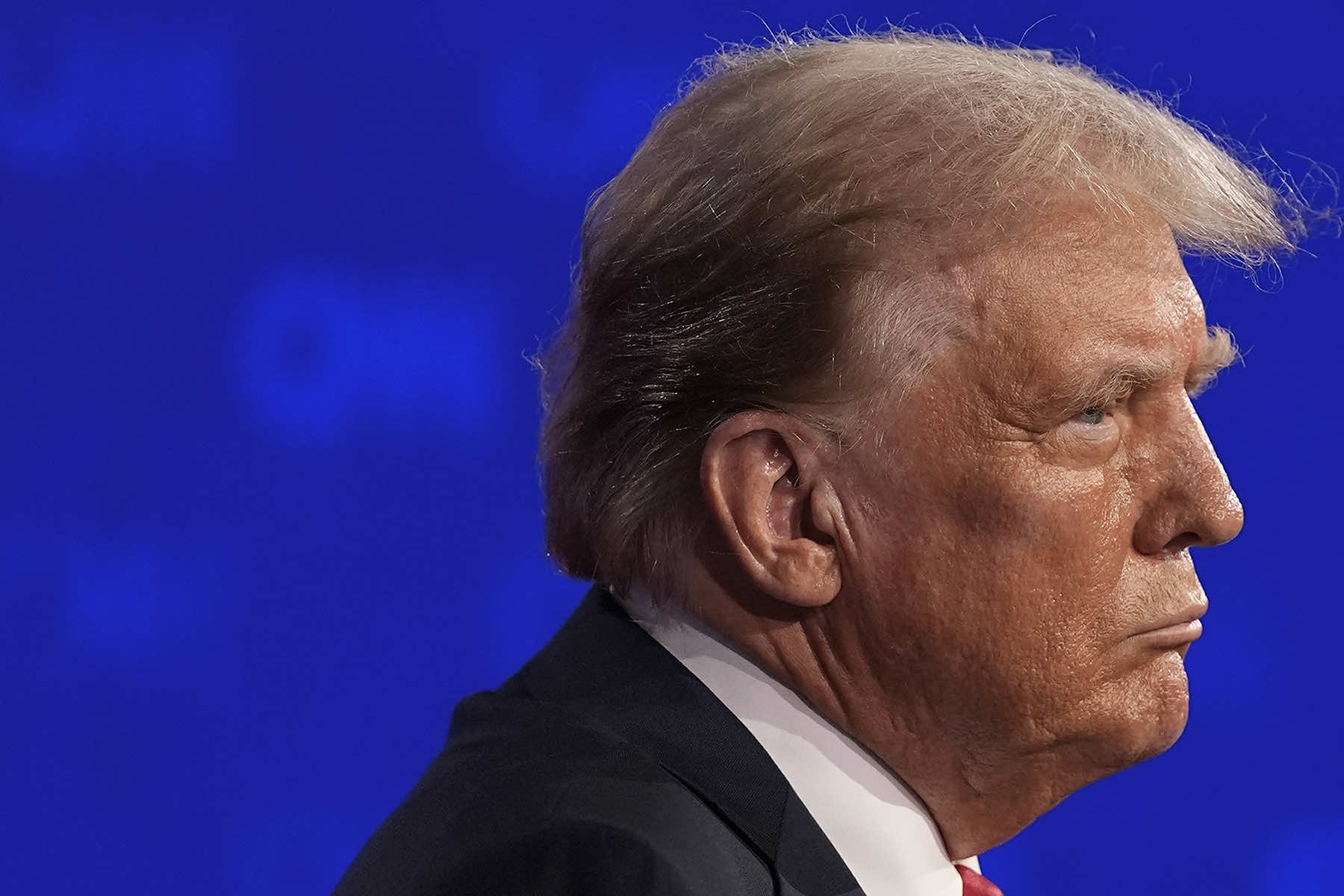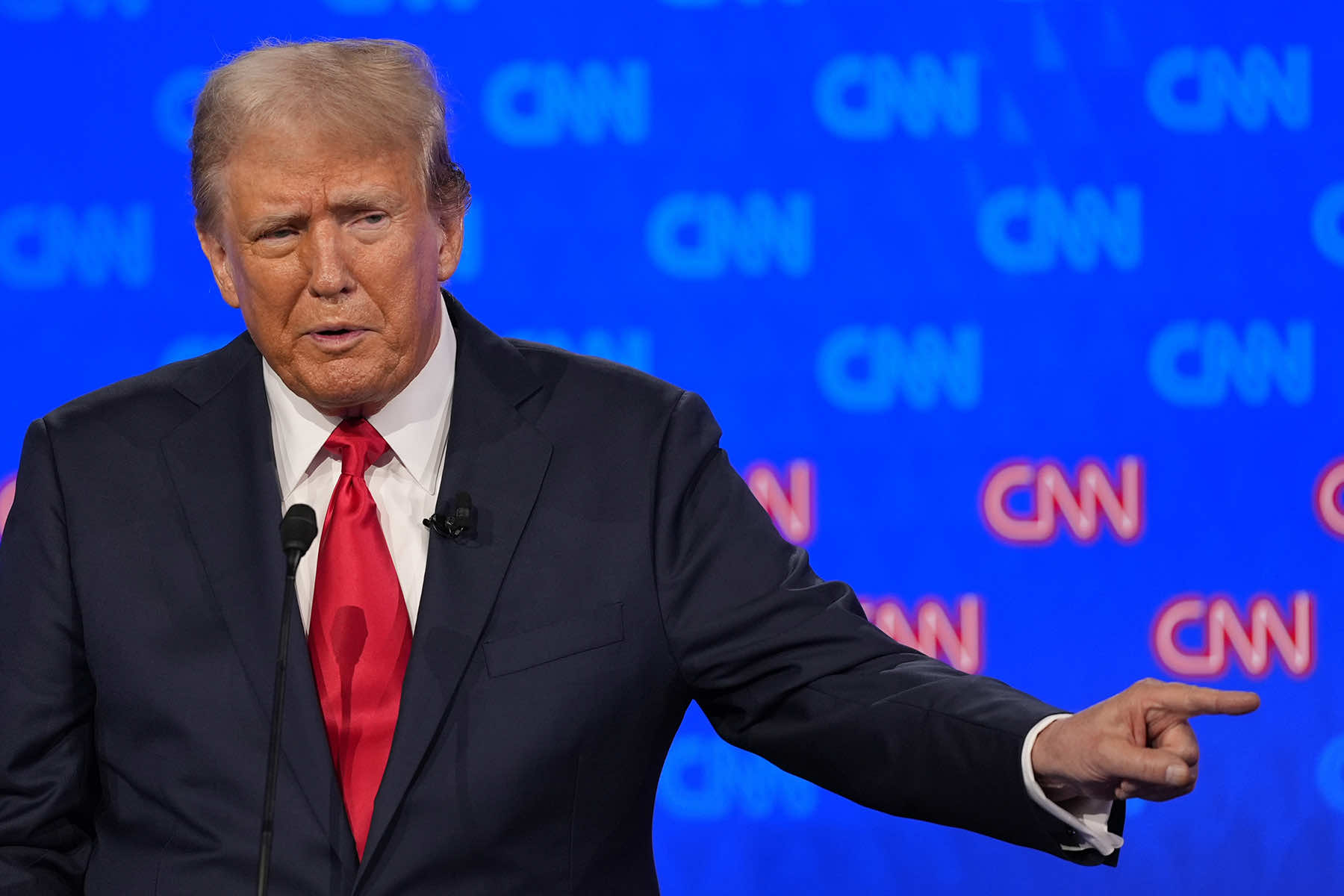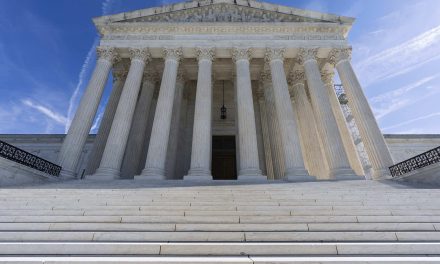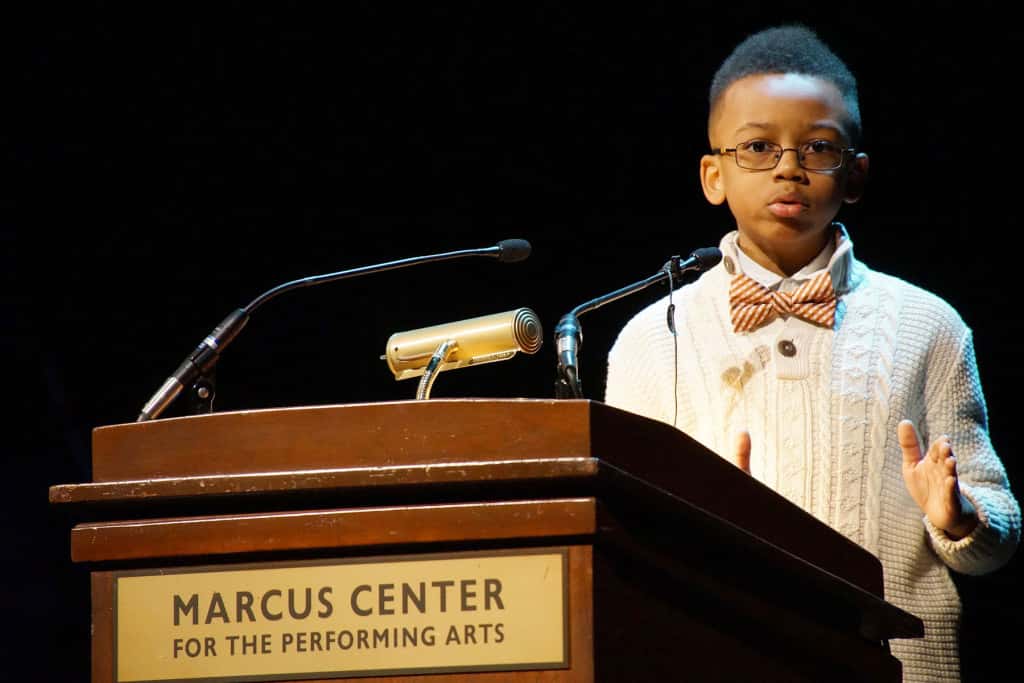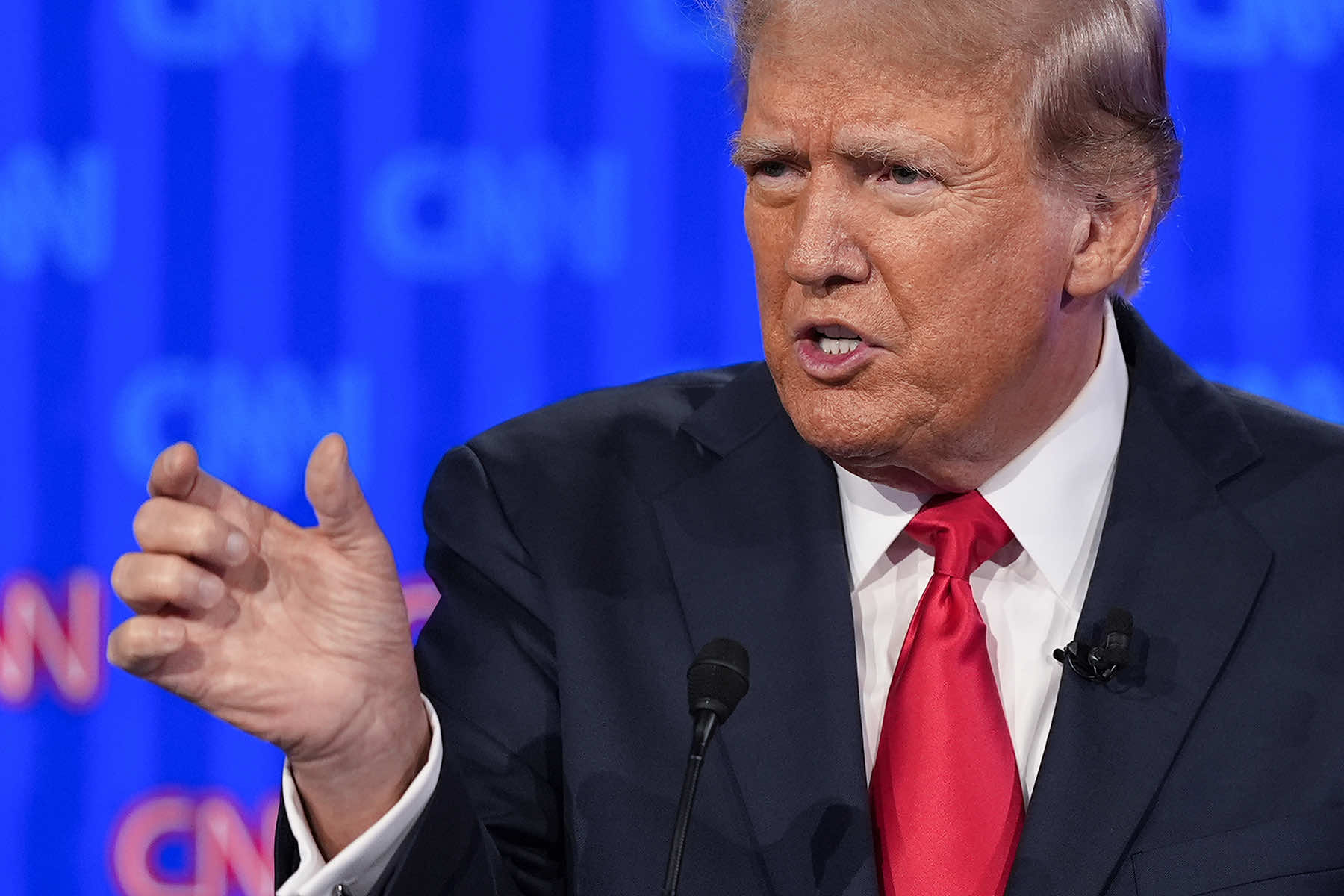
The criminally convicted ex-president and adjudicated rapist Donald Trump warned during his debate with President Joe Biden, and again at a June 28 rally, that migrants were taking “Black jobs” and “Hispanic jobs” from Americans, angering critics who called it a racist and insulting attempt to expand his appeal beyond his White conservative base.
While President Joe Biden’s halting debate performance on June 27 stirred widespread concerns among fellow Democrats about his readiness, Trump also repeatedly made false claims and promoted the same outlandish conspiracy theories that he has long peddled during his campaign.
Trump suggested without evidence that Democrats want migrants to displace Americans as voters, and he described the state of the nation under President Biden as worse than during the deadly 2017 neo-Nazi march in Charlottesville, Virginia. Trump has often downplayed the racist overtones of the march, once saying there were “fine people on both sides.”
Trump’s depiction of a country on the brink, under siege from unfettered migration and beset by racial strife and economic chaos, echoed his longstanding rhetoric about the state of the United States. It is a pessimistic vision that has long appealed to the GOP’s largely White, hard-right base but has also alienated other Americans, especially voters of color.
“The fact is that his big kill on the Black people is the millions of people that he’s allowed to come in through the border. They’re taking Black jobs now,” Trump claimed during the debate on CNN. “They’re taking Black jobs and they’re taking Hispanic jobs. And you haven’t seen it yet, but you’re going to see something that’s going to be the worst in our history,” he warned without specifying the danger.
Yet Trump and his allies believe that such rhetoric may hold greater appeal this year, especially with Hispanic communities dissatisfied with President Biden’s performance in office. The fact that Congressional Republicans actively sabotaged President Biden’s policies to help get Trump re-elected, like blocking a comprehensive immigration and border security bill, remains overlooked and absent from political discussions.
“Forward Latino categorically condemns the litany of false assertions made by the former President during the June 27 Presidential Debate. In a failed attempt to create division between our nation’s Black and Brown communities, he not only made false claim after false claim regarding immigrants, but stated that immigrants were taking jobs that rightfully belong to Black Americans,” said Darryl Morin, national president of Forward Latino, a Milwaukee-based advocacy nonprofit. “Not surprisingly he made no mention of the record employment rates, levels of business ownership, decreases in poverty levels, access to housing, healthcare, broadband and more by Black and Brown Americans, records that followed historic investments made by President Joe Biden.”
Morin said that the bond between the Black and Hispanic communities was far stronger than any false claim made by the former President. Both communities also stood united against his discriminatory practices and rhetoric that fueled a record spike in the number of acts of hate against people of color.
“Whether it was calling out his remarks that helped motivate the acid attack against a Hispanic American right here in Milwaukee, or the etching of symbols and words of hate etched into school lockers and bathrooms in Racine and Muskego targeting Black students, to his remarks that were repeated by the shooter in El Paso, Texas, or his violent and forced clearing in the park across from the White House, of peaceful and lawful demonstrators exercising their right to free speech following the murder of George Floyd, we know who Donald Trump is and our communities will stand together against hate. We will not be divided,” added Morin.
Trump also repeated his racially inflammatory comments during a rally on June 28 in Virginia. The phrase “Black jobs” was widely condemned by Democrats and Black leaders as vague and insulting.
“I’m still wondering, what is a ‘Black job,'” Jaime Harrison, chair of the Democratic National Committee, quipped on June 28 during a news conference with former Georgia Democratic gubernatorial nominee Stacey Abrams in Atlanta. Other prominent President Biden allies including Representative Jasmine Crockett, D-TX, Representative Bennie Thompson, D-MS, and Raphael Warnock, D-GA, also condemned Trump’s words following the debate.
“There is no such thing as a ‘Black job.’ That misinformed characterization is a denial of the ubiquity of Black talent. We are doctors, lawyers, school teachers, police officers and firefighters. The list goes on,” said Derrick Johnson, president and CEO of the NAACP. “A ‘Black job’ is an American job. It’s concerning that a presidential candidate would seek to make a nonexistent distinction. But the divisive nature of this comment is not surprising for Donald Trump.”
Trump’s allies followed their traditional playbook of gaslighting the public in response to the backlash, claiming that the terrible thing Trump said was not actually terrible or the thing he said, and that he meant something else.
Asked to clarify what Trump meant in describing a “Black job” during an interview with NBC News, Republican Sen. Tim Scott of South Carolina, who is Black and is under consideration to be Trump’s vice presidential nominee, sidestepped the question.
Vast economic research has shown that immigration dramatically helps to increase employment, with a 2024 paper by economists Alessandro Caiumi and Giovanni Peri finding that immigration between 2000 and 2019 had a positive effect on the wages of less-educated workers born in the United States.
“On Tuesday, November 5th, 2024 – my birthday – I will have left for the day from my “Black job” as Mayor of the largest, most populous, most diverse, most economically powerful city in the entire state of Wisconsin having voted in my fifth consecutive presidential election … I will have voted for a man who is older, yes, but a man who is decent. A Man who has character. A man who has spent his entire life in service to our country … A man who won’t threaten democracy,” said Mayor Cavalier Johnson in a statement.
Some Black adults do think there is a possibility that immigration will affect employment opportunities for workers who are already here. About 4 in 10 Black adults say it is a “major risk” that the number of jobs available to American workers will be reduced when immigrants come to the U.S. — whether they arrive legally or illegally — according to an AP-NORC poll from March. But the poll also found that about 3 in 10 Black adults think it is a major benefit that immigrants will take jobs that Americans do not want.
U.S. Congresswoman Gwen Moore from Wisconsin responded to Donald Trump’s bizarre and racist comment about ‘Black jobs’ and released a statement saying “President Biden’s record speaks for itself. He rescued the economy from a devastating recession, lowered the cost of prescription drugs, and made investments to revive manufacturing jobs, remove lead pipes, and fix our crumbling roads and bridges.”
In some communities, an increased number of migrants has generated greater economic anxiety and concern that government resources are not allocated fairly. Yet Black and Hispanic Americans are on average more supportive of immigration than other demographics, and in cities like Chicago, Denver, and New York, racial justice groups have been at the forefront of mitigating potential strife between communities of color and undocumented people on issues like jobs.
“President Biden has helped bring good-paying jobs and infrastructure projects to help build Wisconsin’s economy for the future,” said Governor Tony Evers. “He is lowering costs and fighting for working families.”
For some Black activists, the comments changed little about the state of the presidential race. Michael Blake, founder and CEO of the Kairos Democracy Project, said it was hard for someone to believe that Trump meant immigrants were taking quality jobs.
“It is the responsibility for us to then tell the story of the benefits of diversity, rather than the fears of it. And the notion that those people are taking from you is a fear-only message as opposed to asking: How do we all win?” Blake said. “When you embrace all races, we all win. We should not allow fear of the past to supersede the prosperity of the future, because we all can win.”

